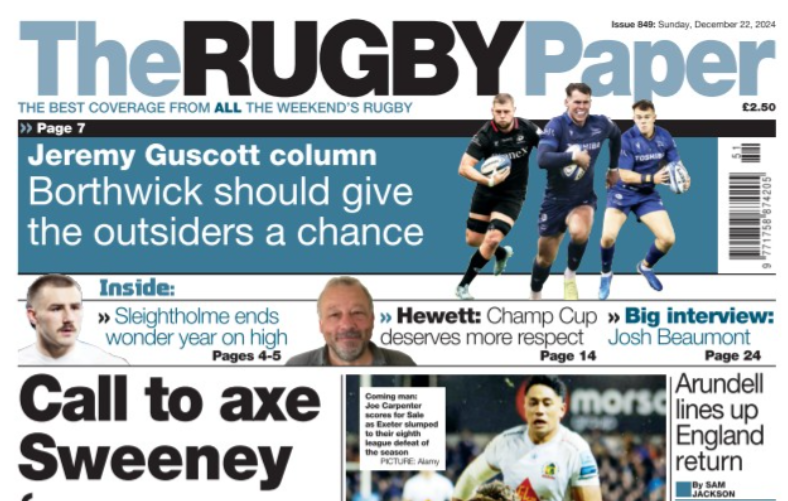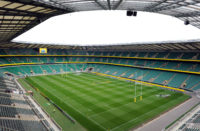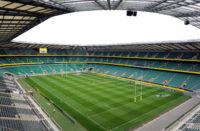Rugby is a team sport that necessitates skill, strength, speed, and strategy. Every successful team, however, has a coach who guides, motivates, and inspires them. Coaching is an important aspect of rugby because it can mean the difference between winning and losing, especially in a high-stakes tournament like the Rugby World Cup. The 2023 Rugby World Cup in France will feature 20 teams and 48 matches across nine venues. It will also feature some of the best coaches in the world, each with their own story and accomplishments to share.
In this article, we will look at the coaches to keep an eye on during the Rugby World Cup 2023, as well as what makes them stand out from the crowd.
Ireland’s Andy Farrell
Farrell was a rugby league and rugby union player for Wigan, Saracens, and England. He graduated from the University of Salford with a degree in Sports Science. In 2009, he began his coaching career as an assistant coach with Saracens, and in 2012, he became an assistant coach with England. In 2013 and 2017, he also coached the British and Irish Lions. He joined the Ireland national team as an assistant coach under Joe Schmidt in 2016 and took over as head coach in 2019.
Farrell won six Championships and four Challenge Cups with Wigan in rugby league, and he captained England to World Cup victories in 1995 and 2000. He also won the Premiership with Saracens in 2008 and represented England in rugby union for eight Tests, including the 2007 World Cup. He guided Saracens to the Premiership final in 2010 and the European Champions Cup in 2016. He also helped England win two Six Nations titles and reach the World Cup final in 2019. In 2017, he was a member of the Lions coaching staff that drew a series with New Zealand. He led Ireland to a Six Nations championship in 2020 and a series victory over South Africa in 2021.
Farrell’s World Cup strategies are based on his vision of playing a balanced and intelligent game capable of exploiting any opportunity or weakness. He wishes to capitalize on Ireland’s strengths in the breakdown, defence, and kicking game while also adding more creativity and flair in attack. He wants to foster a positive and encouraging environment within the team, where players are encouraged to learn and grow. He also wishes to improve his coaching methods and decision-making through the use of data and technology.
Fabien Galthié (France)
Galthié was a former France captain and scrum-half for Colomiers and Stade Français. He graduated from the University of Toulouse with a degree in Physical Education. He started his coaching career as the head coach of Stade Français in 2004 and then became the head coach of Montpellier in 2010. In 2017, he also served as a consultant for Toulon. In 2019, he joined the France national team as an assistant coach under Jacques Brunel, and in 2020, he took over as head coach, succeeding Brunel.
Galthié won three Grand Slams with France in 1997, 1998, and 2002, as well as four World Cups. In 1998, he won the European Challenge Cup with Colomiers, and in 2000, he won the French championship with Stade Français. In 2002, he was named IRB Player of the Year. He assisted Stade Français in reaching the Top 14 final in 2005 and winning the European Challenge Cup in 2007. In 2011, he led Montpellier to their first Top 14 final, and in 2014, he led them to the European Challenge Cup final. He led France to its first Six Nations Grand Slam since 2010.
Galthié’s World Cup strategies are based on his vision of playing a modern, dynamic game capable of adapting to any situation or opponent. He wants to capitalise on France’s strengths in the scrum and lineout while adding speed and skill in the backs. He wishes to foster a positive and ambitious culture within the team, in which players are encouraged to learn and grow. He also wishes to improve his coaching methods and decision-making through the use of data and technology.
Ian Foster from New Zealand
Foster was a former New Zealand fly-half for Waikato and the Chiefs. He graduated from the University of Waikato with a degree in Management Studies. In 2002, he was the head coach of Waikato, and in 2004, he became the head coach of the Chiefs. He joined the All Blacks as an assistant coach under Steve Hansen in 2012 and helped them win the World Cup in 2015. In 2019, he was named the All Blacks head coach, succeeding Hansen.
As a player, Foster won two NPC titles with Waikato in 1992 and 1999 and played 28 Super Rugby games for the Chiefs. In 1995, he also played for the NZRFU President’s XV. He coached Waikato to the NPC final in 2002 and the semi-final in 2003. In addition, he led the Chiefs to the Super Rugby final in 2009 and the semi-final in 2004. He was a member of the All Blacks coaching staff that won the World Cup in 2015, six Rugby Championships, and eight Bledisloe Cups. He also led the All Blacks to a 3-0 series victory over France in 2021, as well as a successful end-of-year tour in Europe in 2022.
Foster’s World Cup strategies are based on his vision of playing a fast and expansive game capable of exploiting any weakness or opportunity. He wants to capitalise on New Zealand’s strengths in skills, fitness, and decision-making while also adding more variety and unpredictability to the attack. He wants to foster a positive and encouraging environment on the team, where players are encouraged to express themselves and have fun. He also wishes to improve his coaching methods and decision-making through the use of data and technology.
Jacques Nienaber (South Africa)
Nienaber is a former physiotherapist who has worked for the Free State Cheetahs, a provincial rugby union team based in Bloemfontein, since 1997. In 2008, he began his coaching career as an assistant coach with Western Province and Stormers, reporting to Rassie Erasmus. In 2017, he also served as a consultant for Munster. He joined the South African national team as an assistant coach under Erasmus in 2018 and succeeded Erasmus as head coach in 2020.
Nienaber, a physiotherapist, assisted the Free State Cheetahs in winning two Currie Cups in 2005 and 2006. In 2010, he coached Western Province and Stormers to Currie Cup and Super Rugby finals, respectively. In 2017, he also helped Munster reach the European Champions Cup semi-finals. He was a member of South Africa’s coaching staff when they won the World Cup in 2019, the Rugby Championship in 2019, and a series victory over the British and Irish Lions in 2021.
Nienaber’s World Cup strategies are based on his vision of playing a physical and disciplined game capable of dominating any opponent or condition. He wants to capitalise on South Africa’s strengths in the scrum, lineout, and defence while also adding more variety and unpredictability to the attack. He wants to foster a positive and encouraging environment within the team, where players are encouraged to learn and grow. He also wishes to improve his coaching methods and decision-making through the use of data and technology.
If you’re a rugby fan, you know that the World Cup is the ultimate event. It’s where the best teams compete for glory, honor, and bragging rights. But you can’t just watch it on TV; you have to be there in person to feel the excitement, the passion, and the atmosphere. Don’t wait until tickets are sold out or too expensive. Don’t miss this once-in-a-lifetime opportunity to see your favorite players and teams in action. Buy your Rugby World Cup tickets today!






















